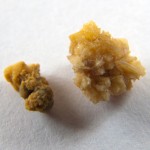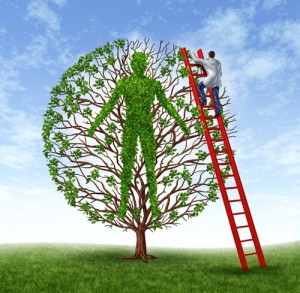Kidney Stones: Break Free from Kidney Stones
Dr. Shteynshlyuger opened the first comprehensive Stone Clinic in NYC to address the previously unaddressed need for a comprehensive approach to keeping patients stone-free, with prevention as a major focus of care. Dr. Shteynshlyuger has extensive experience taking care of patients with complex kidney stone histories. He enjoys the surgical challenges and the medical complexity of evaluating and treating men and women with kidney stones.
He is highly respected among urologists, having won the debate at The New York Academy of Medicine on “Ureteroscopic laser lithotripsy vs Flomax/observation.”
Dr. Alex Shteynshlyuger is a fellowship-trained board-certified urologist with expertise in treating kidney stones. If you or someone you know has been diagnosed with renal colic or kidney stones, make an appointment to take advantage of Dr. Shteynshlyuger’s expert advice.
Kidney stones are fairly common, especially in temperate and hot climates such as New York. They are more common in the summer due to dehydration.
Kidney stones are often preventable if the cause is discovered and professionally addressed.
Kidney stones are very prevalent. Over a lifetime 10%of people will experience a kidney stone. Typically the pain from a kidney stone is described as worse than labor pain. Kidney stones can be dangerous and can lead to urinary tract infection, and kidney failure. There are a number of treatment options for kidney stones.[/col]
The optimal treatment option for an individual patient depends on the stone location, stone size, presence or absence of pain, infection, and kidney function. Diet plays an important role in stone formation. Water intake decreases concentration of minerals in urine, increases the rate of urinary flow which limits the potential for nephrolithiasis. Optimal diet and fluid intake can help prevent kidney stone formation.
For some patients, medical expulsive therapy or spontaneous passage of kidney stones may be an appropriate option. For other patients, ureteroscopy with laser lithotripsy may be a good option. Shockwave lithotripsy or ESWL commonly called lithotripsy is a good minimally invasive option for some patients. For patients with larger stones, percutaneous nephrolithotomy (PCNL) may be the right choice.
Dr. Alex Shteynshlyuger is an expert in kidney stone care offering full metabolic evaluation to all patients at increased risk of stone recurrence. He is among few urological surgeons who are fellowship-trained in Endourology, a subspecialty of urology that emphasizes the care of patients with kidney stones.
By using advanced techniques for ESWL lithotripsy, Dr. Shteynshlyuger increased the efficacy of stone fragmentation by up to 25-30%.
His advanced minimally invasive surgical skills have been well recognized by referring physicians. He routinely operates on patients with significant medical problems and complex kidney stones with an outstanding record of safety and success.
Dr. Shteynshlyuger utilizes all modern surgical techniques to render patients stone-free including ESWL lithotripsy, Holmium laser ureteroscopy, and PCNL.
Read about cystoscopy, ureteroscopy, PCNL, and ESWL (lithotripsy).
Dr. Shteynshlyuger serves patients in Brooklyn, Manhattan, and Queens.
The peak incidence of urolithiasis is from 20’s – to 40’s. The onset of the disease usually occurs during the teenage years.
Relative risk is 3 times higher in males than in females. No significant sex difference in pediatric urolithiasis (1.5 male to 1 female). It is possible that androgens predispose to urolithiasis via increased oxalate production in the liver. Women have higher citrate concentrations than men; women with recurrent stones have a higher prevalence of hypocitraturia than women with the first stone.
Women are more likely to have predisposing factors such as UTIs or metabolic defects such as hyperparathyroidism.
Patients with certain medical conditions have an increased risk for kidney stone disease. Conditions that cause chronic diarrhea for example IBD, Crohn’s disease, history of gastric bypass can predispose to kidney stones. In addition, patients with primary hyperparathyroidism, obesity, and gout are at increased risk of kidney stone disease.
Prevalence of urolithiasis is higher in mountainous, desert and tropical areas.
The United States has a higher prevalence of urolithiasis than would be expected based on its geography. Southeastern US has higher incidence of calcium oxalate stones; East coast has higher incidence of uric acid lithiasis.
Peak incidence during the warmest months: July-September. Variability is attributable to a higher incidence of uric acid stones in the summer months. Concentrated urine tends to be acidic; acidic urine can keep much less uric acid or cystine dissolved in solution than alkaline urine.
Urolithiasis is a complex disease with genetic risk factors superimposed on environmental risk factors. 25% of patients have a positive family history of nephrolithiasis. Family members of patients with the stone disease are at increased risk.
Dr. Alex Shteynshlyuger is a fellowship-trained board-certified urologist with expertise in treating kidney stones. If you or someone you know has been diagnosed with renal colic or kidney stones, make an appointment to take advantage of Dr. Shteynshlyuger’s expert advice.

